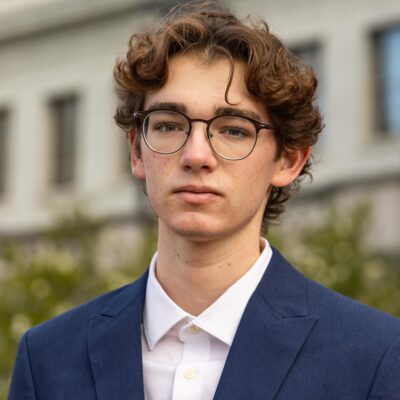Theodore Coffey Rose Hills
Gold catalysis as a pathway towards modular enantiomeric probe pairs
Small molecule drugs function by binding to a target protein in a binding pocket, inhibiting or changing the protein’s activity, thereby creating a therapeutic effect. Finding novel protein binders is challenging because many potential binding pockets remain uncharacterized. Probes with a covalent warhead have been used to find binding pockets since the probes can covalently bond to amino acid residues. Enantiomeric probe pairs have recently been used to identify stereoselective binding pockets which tend to be more therapeutically relevant. I hypothesize that asymmetric gold catalysis can be used to synthesize these probe pairs to form a modular library of possible probes. Gold catalysis is typically very chemoselective which indicates that it may tolerate the reactive warheads during probe creation. The installation of warheads in a modular way will make specific binding site pocket identification easier and faster since the warhead or small molecule fragment (which will both be attached to a scaffold) can be modularly switched out. This strategy is a new pathway toward diverse and modular probes with the purpose of protein-binding pocket characterization.
Message To Sponsor
Thank you very much for your support of my research endeavors. During the fellowship, I will be able to devote my time to studying my chosen research topic. I am grateful for the opportunity to investigate a meaningful and impactful topic due to the support of this scholarship.